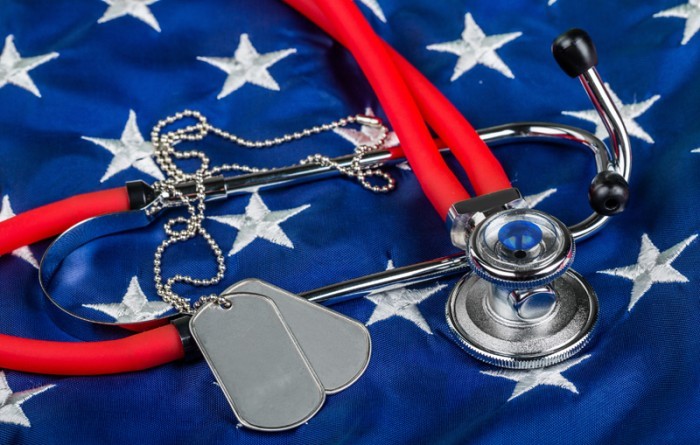Would New Care Access Standards Pave the Way for VA Privatization?
The VA proposed new access standards based on drive and appointment wait times for veterans seeking private healthcare, but some are saying it’s a move toward VA privatization.

Source: Thinkstock
- Veterans may be able to seek more private healthcare under a new proposed rule from the Department of Veterans Affairs (VA), which Secretary Robert Wilkie says is a move to improve care quality for veterans, not VA privatization.
Released Jan. 30, 2019, the proposed rule would alter access standards for community care and urgent care. The standards proposed to meet the requirements of the MISSON Act would allow veterans to receive care from the private sector based on average drive time and appointment wait times.
The VA is proposing a 30-minute average drive time standard for primary care, mental health, and non-institutional extended care services. A 60-minute drive time standard would apply to specialty care.
The federal department is also proposing appointment wait time standards of 20 days for primary care, mental health, and non-institutional extended care services, and 28 days for specialty care from the date of request for care exceptions.
“Eligible Veterans who cannot access care within those standards would be able to choose between eligible community providers and care at a VA medical facility,” the VA stated in a press release.
Veterans would also have access to urgent care, the proposed rule states. To access the benefit, veterans would have to select a provider in the VA’s community care network. However, they may be charged a co-payment for the walk-in services.
Critics argue that the proposed access standards are paving the way for VA privatization. The MISSION Act signed by President Trump in 2018 already faced drawback for its general support of VA privatization, particularly because the law developed the Community Care Program for veterans seeking access to private healthcare.
A recent study by the Dartmouth Institute for Health Policy and Clinical Practice found that VA hospitals provided care as good as or better than facilities in the private sector. Researchers cautioned that outsourcing VA care to non-VA hospitals should be reconsidered.
But VA Secretary Robert Wilkie asserted in a statement earlier this week that the proposed rule and other VA care reform in the pipeline is not a “first step toward privatizing the department,” rather a move to improve care quality for veterans.
“VA’s current patchwork of seven separate community care programs is a bureaucratic maze that’s hard to navigate for Veterans, their families and VA employees,” he stated. “Our new access standards will form the basis of a federal regulation that will consolidate VA’s community care efforts into a single, simple-to-use program that puts Veterans at the center of their VA healthcare decisions.”
“Strict and confusing qualification criteria like driving distances and proximity to VA facilities that don’t offer needed services will be replaced by eligibility guidelines based on what matters most: the convenience of our Veteran customers.”
Wilkie stressed that VA care is doing better than ever. The number of annual appointments for VA care increased by 3.4 million since 2014, with over 58 million appointments occurring in the most recent fiscal year.
Veterans are increasingly choosing to receive care at the VA because of its high-quality services, Wilkie emphasized. Patient trust in the VA increased to 87.7 percent and wait times are now shorter than those in the private sector for primary care and two of three specialty care areas.
“In other words, VA is seeing more patients than ever before, more quickly than ever before, and Veterans are more satisfied with their care than they have been previously,” Wilkie stated.
The proposed care access standards aim to provide veterans the opportunity to choose their healthcare providers, just like most Americans can in the private sector, he explained.
“With VA’s new access standards, the future of the VA health care system will lie in the hands of Veterans – exactly where it should be.”
